
Why Have I Fallen in Love With Myanmar - Eunhee Heo (2015 MDP)
- Date 2021-03-19 02:25
- CategoryStory
- Hit1903
A KDIS alumna, Eunhee Heo (2015 MDP), recently published an essay book which contains her experiences in Myanmar. In this article, she shares all her experiences in KDIS and thoughts on Myanmar with us.
What was your motivation to apply for KDIS, and how did your experience in graduate school influence your current career?
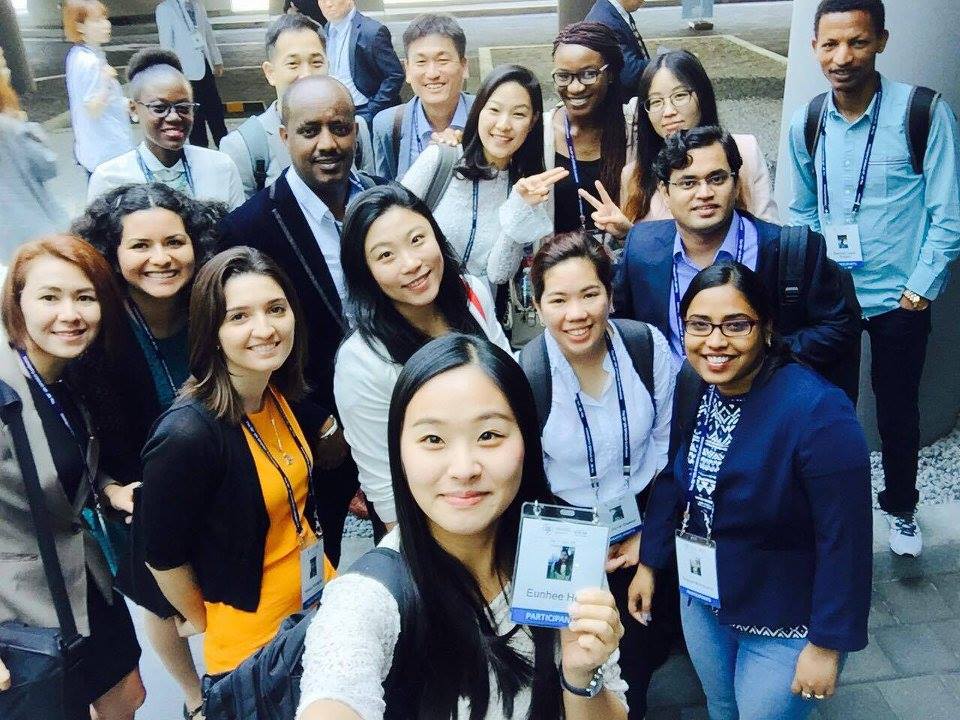 Picture: With colleagues UN DPI Conference in 2016
Picture: With colleagues UN DPI Conference in 2016
I was studying political science and international relations as my bachelor degree major in Korea. In my senior year, while taking the course ‘Korean Diplomacy’, I learned about the importance of sustainable development and the Official Development Assistance (ODA) provided by the Korean government. I was so inspired and wanted to get involved in the international efforts to alleviate environmental destruction. Also, my travel experiences to developing countries such as Mongolia, Laos, Myanmar, and Peru motivated me to design my passion for working in international development fields. I wanted to contribute to improve those countries’ infrastructure and governance to make the citizens’ lives more comfortable and healthier by cooperating with the local communities. After finishing my exchange student program in the United States, I searched online for international graduate schools offering ‘Sustainable Development’ related courses, and I discovered KDI School’s Development Policy Master Program. It was the best place for me because I wanted to continue my studies in an international environment with colleagues from diverse countries. In 2015 fall, I entered KDI School right after my graduation from my undergraduate school.
I realized that it was the best choice in my life to study at KDI School because I could build my diverse capacities and global competence to become ready in order to work with international coworkers. KDI School provided me with numerous opportunities to strengthen my capacities not only in the perspectives of coursework but also in the ones of global citizenship-sense building. We studied in the same classroom, exchanged knowledge and experience from each our countries, and learned about each other’s development situations and cultural environments. I learned about multiple areas of development such as gender and civil society, participatory governance, and political economy. I also could build my research skills by working as a research assistant as my part time job in the Development Resource and Capacity Building divisions, and I served as a dormitory assistant to contribute to make better living conditions for international students to enjoy their time in Korea and strengthen the network.
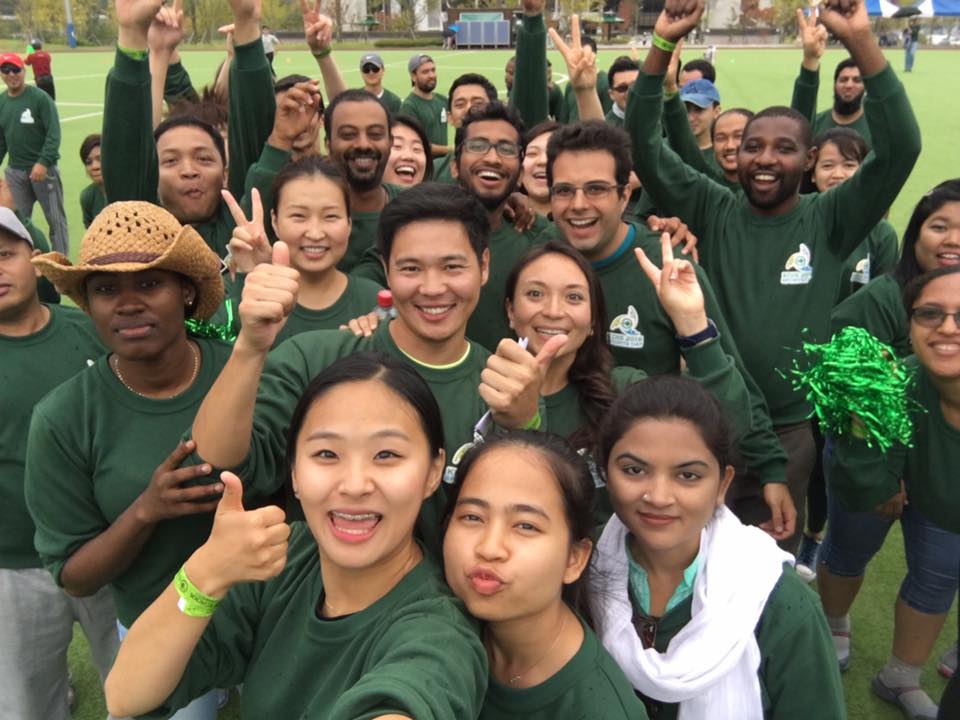 Picture: Sports Day in 2016
Picture: Sports Day in 2016
These experiences broadened my viewpoints about my career. I combined my interest in politics with governance and peace building policy development. I decided to focus on building experience in the sector, and I searched for chances for that. First, I wanted to experience developing counties by living there. This led me to apply for a/the volunteer dispatch program, and I worked in a research institute and development NGO in Myanmar (2017-2019) since my course work had finished. After coming back to Korea, I worked in the Gangwon International Development Cooperation Center (강원국제개발협력센터)(2019) as an administrative officer, and Korea’s Ministry of Foreign Affairs as a researcher (2021).
How have your experiences in Myanmar influenced your current career choices and activities?
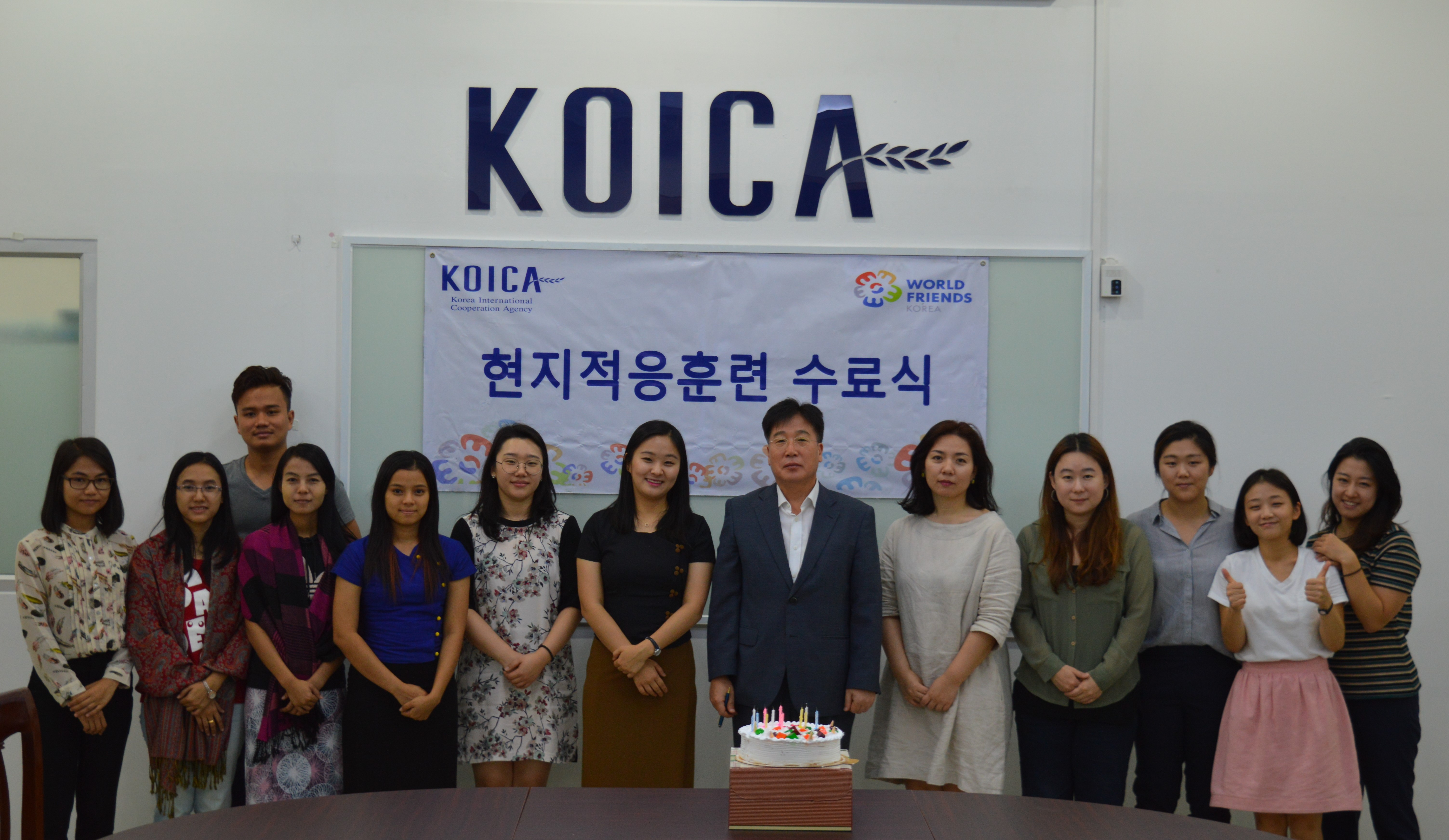 Picture: With KOICA Myanmar Office Staffs in 2017
Picture: With KOICA Myanmar Office Staffs in 2017
Myanmar became the best country for me to apply and experiment with what I learned in KDI School to the actual development field. The organization where I was dispatched was the Myanmar Development Institute (MDI). The institute was established by the Korean government’s grand aid in 2014, and KDI is providing consultancy and knowledge sharing about institute building and policy development with the budget of KOICA. It was such as special experience for me to work with my Myanmar colleagues, who studied at KDI School with me as a part of the KOICA project, in their own country. I learned the importance of a public think tank to drive a country’s development, and I was inspired by observing that Korea’s development experiences can help other countries’ process of development.
Myanmar was in the transition period of leadership from military based governance to the civilian government that was elected in November 2015’s general election with Myanmar citizens’ support. It was the first time for Myanmar to establish a civilian government. Since 2017, I was thrilled by witnessing first hand all the processes of development in Myanmar not only from the perspective of a foreigner but also from the perspective of Myanmar citizens. I felt the strong desire of Myanmar citizens and public officers to reform Myanmar into a more developed and democratic country. I wanted to contribute to their development goal, and this confirmed my desire to work in the field of international development. I conducted research about Myanmar’s presidential system that was newly introduced in the 2011 general election, and wrote a knowledge sharing paper comparing with Korea’s presidential transition system since the 1990s’ civilian government. I could learn so much about the history of both Korea and Myanmar’s political institutions.
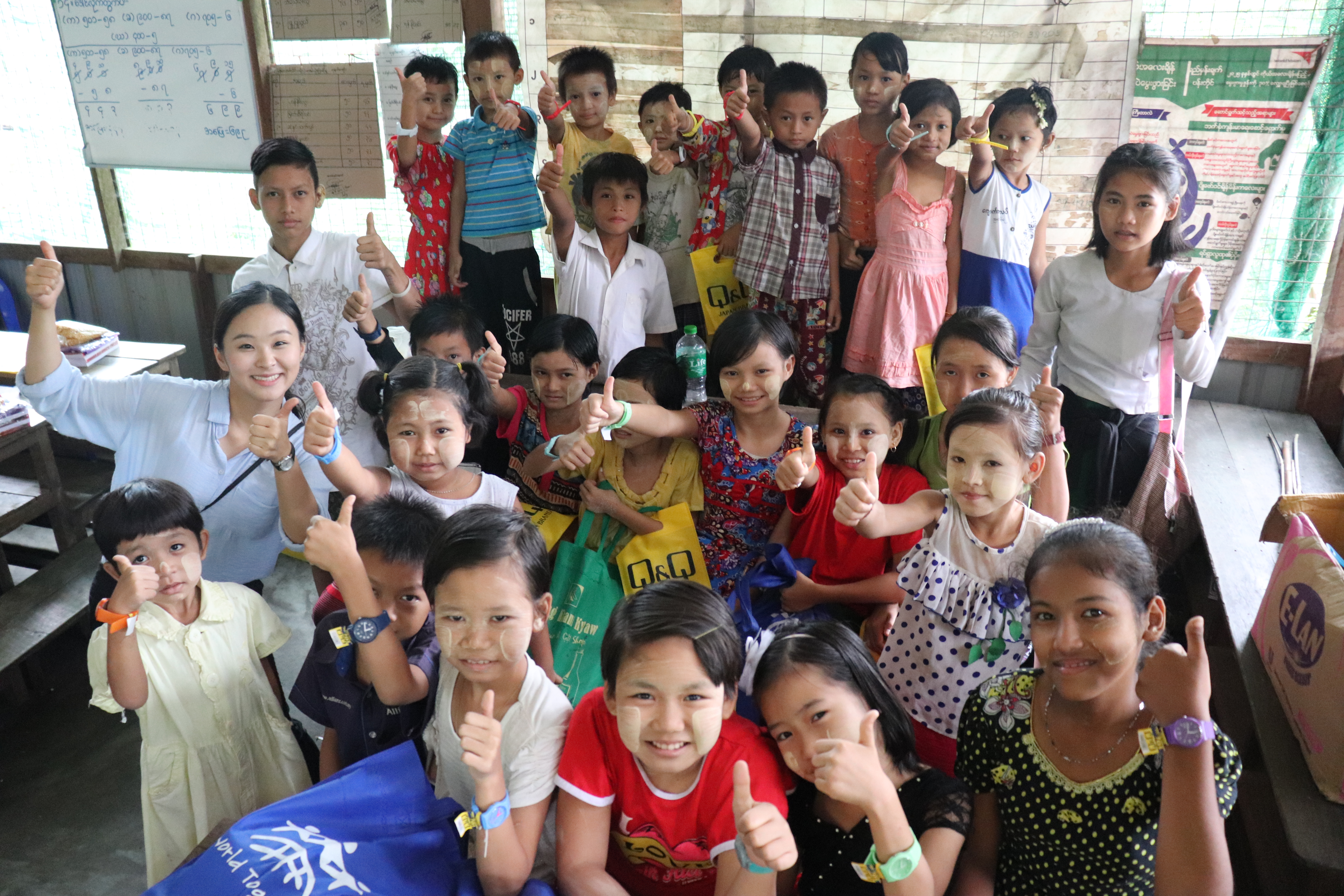 Picture: With Myanmar children in 2018
Picture: With Myanmar children in 2018
In 2018, I went back to Myanmar as a NGO volunteer and implemented a/the Child Sponsorship Program supporting the marginalized Myanmar children’s education continuation, and providing financial support for the cleft lip and palate patients for their surgery. I was happy to meet the local people, listen to their stories, and give them aid to improve their lives.
Based on your experience of living and working in Myanmar for one year as a Korea International Cooperation Agency (KOICA)’s International Development Volunteer and six months as a NGO Volunteer, you wrote and published an essay book entitled ''Why Have I Fallen in Love with Myanmar?’ What made you fall in love with Myanmar? Please tell us about it.
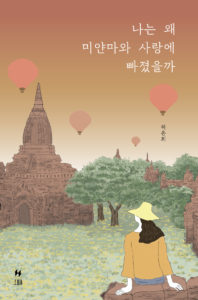 This book is about my love story with Myanmar. I can describe Myanmar as my ‘First Love’ country as it was the first country where I stayed for the longest time in my life and gave me diverse emotions and inspiration. I experienced being and living as a resident of Myanmar after leaving my home country, Korea. Korea’s volunteer programs gave me such a special experience to become a member of the community and society in another country. Since I arrived in Myanmar, I learned Myanmar language (Burmese) to adapt in the country well, and this language skill helped me to experience and to learn different things about the local society. I could build friendships with the local people who could not speak English. Myanmar extended the boundary of my life and broadened my views and possibilities. The book is the result of the records of my times and experiences, and the process of my life change since I met Myanmar. It contains my perspectives as a development researcher, NGO activist, and a traveler. And I designed my visions and dreams for my life’s next stage to make a sustainable and cooperative international society.
This book is about my love story with Myanmar. I can describe Myanmar as my ‘First Love’ country as it was the first country where I stayed for the longest time in my life and gave me diverse emotions and inspiration. I experienced being and living as a resident of Myanmar after leaving my home country, Korea. Korea’s volunteer programs gave me such a special experience to become a member of the community and society in another country. Since I arrived in Myanmar, I learned Myanmar language (Burmese) to adapt in the country well, and this language skill helped me to experience and to learn different things about the local society. I could build friendships with the local people who could not speak English. Myanmar extended the boundary of my life and broadened my views and possibilities. The book is the result of the records of my times and experiences, and the process of my life change since I met Myanmar. It contains my perspectives as a development researcher, NGO activist, and a traveler. And I designed my visions and dreams for my life’s next stage to make a sustainable and cooperative international society.
What things about Myanmar impress you? And could you tell us about some memorable episodes in Myanmar?
I was very impressed by Myanmar’s ethnic and cultural diversity because I was born and grow up in a single-race nation, Korea. According to official reports, Myanmar has about 135 big and small ethnic groups. I could learn and experience diverse cultures by traveling to every corner of the country, whose territory is more than 6 times bigger than Korea’s. Different ethnic groups are united with each other by Myanmar’s major religion, Buddhism. There were also Christians and Muslims who built Myanmar’s independence history together. When I was on the Kalaw-Inle Lake hiking trip in Shan State, I had a chance to sleep over in a minor ethnic people’s local house. It was the ‘Thadingyut’ festival period, which is Myanmar’s big national holiday related to Buddhism.
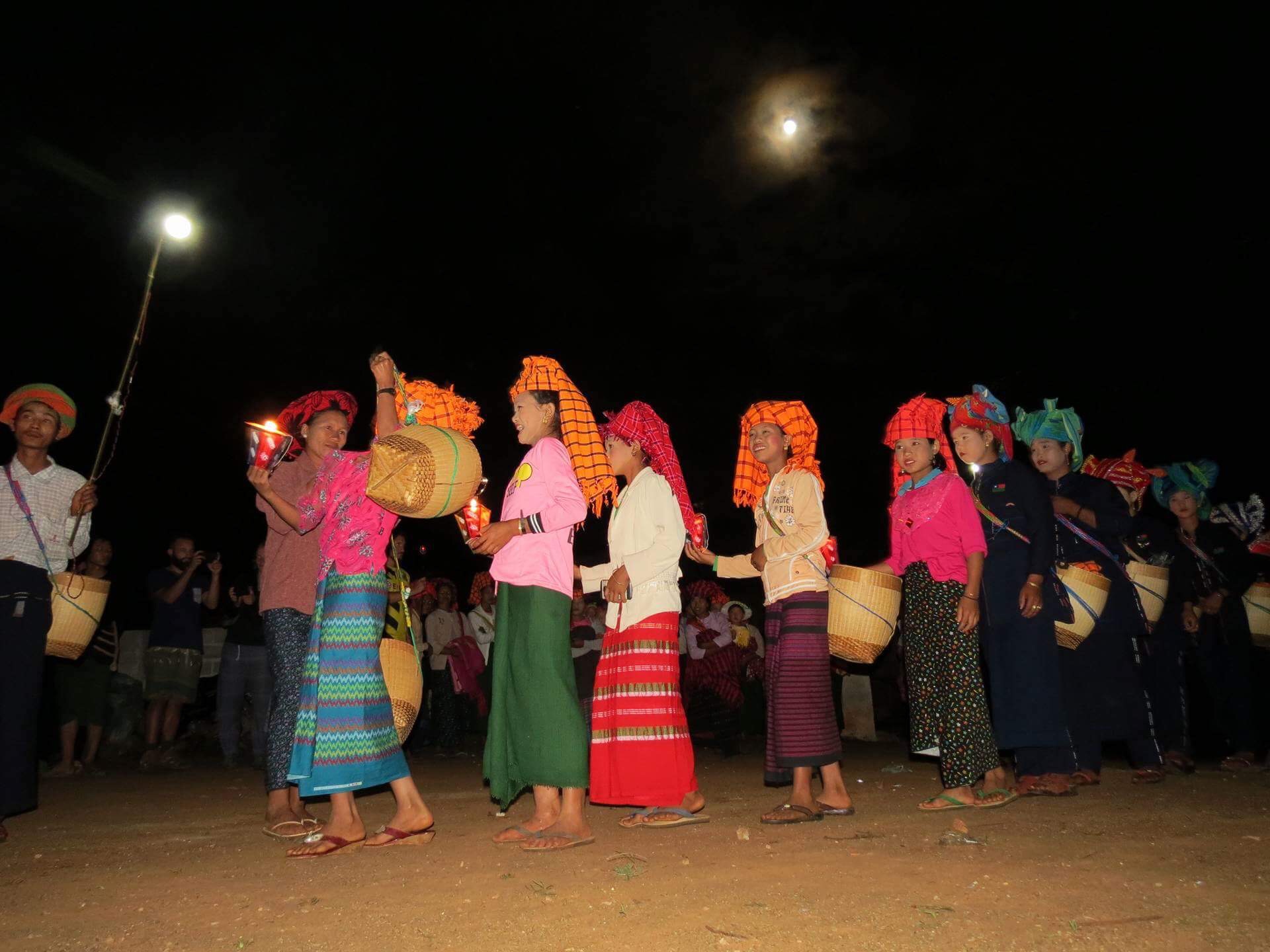 Picture: Pa-O people''s lightening festival during Thadingyut
Picture: Pa-O people''s lightening festival during Thadingyut
It was so memorable for me to see every Pa-O ethnic village member living in the mountain gathering and lighting candles with sincere spirit. I agonized a lot about how to make a peaceful multiracial country where each citizen can live freely and happily based on fairness and cooperation. I became more interested in helping to foster a democratic governance system. Myanmar helped me to realize my vocation to follow for the rest of my life. I really appreciate Myanmar and its people for showing me many different aspects of life and perspectives to shape my vision.
Given current events in Myanmar, do you think that the political and economic culture of Myanmar you experienced at that time has changed a lot since the coup in February 2021? What do you think of the ongoing political problems in Myanmar?
During the time when I was staying in Myanmar (2017-2018), the county was experiencing so much progress politically and culturally, as the first civilian government established in 2016 by 2015 general election was getting broad support from most Myanmar citizens across the whole country. Even though the new government’s policy making skill was less skillful than previous governments’ ones, people kept patience and kindly waited for the reform process. It was possible because people fully trusted the government they elected by their hands. I learned the power and importance of democratic election and governance from Myanmar’s case.
The new government introduced rules and regulations that domestic and foreign people can do business in Myanmar by legitimate process, and unnecessary and unjustified policies were removed such as applying for permission to travel abroad and searching a house if it is suspected that there is any guest who is not reported in advance. Myanmar’s government was making efforts to build national reconciliation and develop federal government based on transparency and fairness. For that, the atmosphere for different ethnic groups to gather and to have conversation for historical reconciliation and future cooperation was being built without weapons. Compared to the current situation, the security was so safe that I could travel around the county alone as a foreigner. Now, it seems very dangerous to do that again. The bad rules and practices are reviving again. In early March, Myanmar’s major domestic media companies which were reporting credible information about the ongoing crisis were forced to shut down, and some reporters were arrested. It is expected that the Myanmar citizens’ freedoms will be restricted more and more. I realized that I was staying in Myanmar when this country was in a very precious golden age.
What do you think of the Myanmar police suppressing the protesters?
It is so sad that the policemen who have responsibility to protect their citizens are obeying a minority of military leaders and attacking the citizens with cruel and brutal ways. Unfortunately, Myanmar’s police force is under the Ministry of Home Affairs, and this ministry is under the military control as the military chief commander appoints the minister. The Ministries of Border Affairs and Defense are also in the control of the military force. On the other hand, there are also conscientious policemen and soldiers who reject obeying the military’s orders, and are leaving their jobs. One of my acquaintance is also a policeman in Nay Pyi Taw capital city, and I recently heard the news that he is also participating in the Civil Disobedience Movement (CDM) by not going the office. I am so proud of him but am also worried about his family’s security at the same time. I think Myanmar’s people are so brave and bold to fight for their country’s democratization. I felt hope from watching them even though the military and police forces’ repression level is becoming more serious and brutal.
What kind of effort do you think is necessary for democratization in Myanmar?
In Myanmar, I think it essential to persuade and encourage more policemen, soldiers, and public officers to participate in the CDM and to protect their public by taking the risk. Their participation against military dictatorship will also eventually contribute to reform Myanmar’s military and security forces systems in the future because the citizens will recover their trust in the national security forces that they have lost since the military dictatorship started in 1960s. One of my Myanmar friends working as a civil servant, who could not join in CDM because of her superior’s rejection and family’s concerns, recently sent me news that she has finally started CDM. She looked very happy and relieved.
Internationally, the public from the other countries including Korea needs to speak out for Myanmar citizens and share their current situation. Now, Myanmar people and Korean civil society based in Korea have united as a team and have been leading protests to raise the awareness of Korean citizens and its government, and are running a fund to support Myanmar citizens’ CDM. The voices of citizens will lead their governments to announce more strict policies to restrict Myanmar military’s economic activities and to stop cooperative relationship related to the military governance. As the result, on March 12th, the Korean Ministry of Foreign Affairs announced Korea’s contingency action plans. Our government will stop trading military supplies and cooperating with Myanmar’s military and security forces.
Ultimately, I hope the United Nations will make the decision to take ‘Responsibility to People (R2P)’ action to protect Myanmar citizens by sending UN Peacekeeping Corps to Myanmar’s major cities. Myanmar military and police forces gave up their roles to protect their citizens and are terrorizing and threatening their citizens. People cannot even access the internet freely at night, so they cannot communicate and share information in the emergency situation. Myanmar society is now in chaos. This is what most of Myanmar’s people want in order to stop seeing innocent people killed every day as soon as possible. International society/The international community should unite and take action to save Myanmar from falling into a violent military force’s control. It will come back as bigger burden and risk that we have to deal with in the future if we ignore Myanmar’s situation now. Korean people should not forget that we could not win our pro-democracy movement in 1980s without foreign media and citizens’ support, and help Myanmar as much as we can.
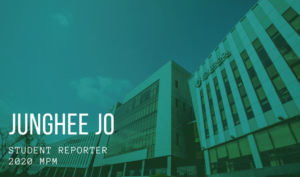
Related News
-
Story805 days ago
KDI School Bookshelf #1: Book Recommendations by Alumni -
Story832 days ago
Establishment of Botswana Alumni Association#Alumni #Alumni Gathering #kdi #KDI school #kdischool #Alumni Association #botswana
-
Story836 days ago
Letters from the New Alumni Association Representatives#Interview #Alumni #kdi #KDIS #Kazakhstan #KDI school #kdischool #Alumni Association #Cameroon #message #australia #madagascar #russia #sierra leone #zimbabwe
